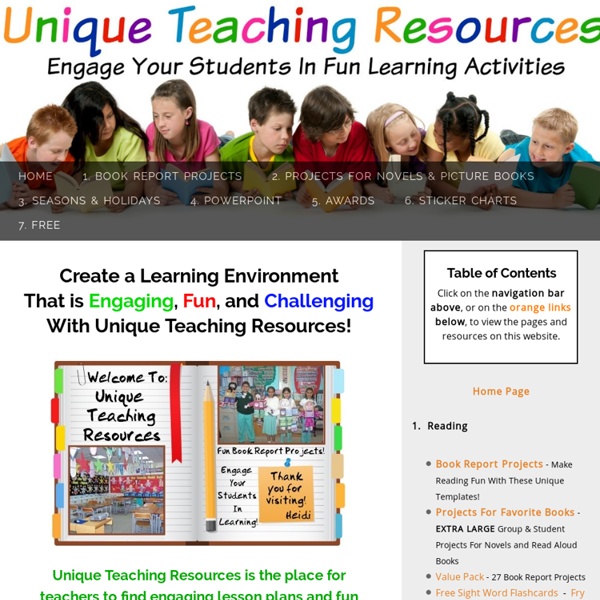



Teachers TV - The Department for Education Skip to main content GOV.UK uses cookies to make the site simpler. Find out more about cookies Is this page useful? Yes this page is useful No this page is not useful Is there anything wrong with this page? Thank you for your feedback Close Help us improve GOV.UK Don’t include personal or financial information like your National Insurance number or credit card details. To help us improve GOV.UK, we’d like to know more about your visit today. Don’t have an email address? You Are Your Words - AHD webyarns.com: stories for the web Class Tools Just this morning I had an excellent experience using an exciting interactive site called Class Tools which allows you to create games, activities, and diagrams in Flash (without knowing a thing about Flash!). While covering an eighth grade social studies class, I informed students that they would be creating review games for an upcoming test. They were less than enthusiastic (and those of you who are familiar with the typical enthusiasm level of eighth graders will know that causing them to be even less excited was something of a real feat). Hoping to rescue the moment, I asked if some of them would like to create a game online. Even this was met with grudging acceptance, but they agreed, perhaps considering it at least a momentary reprieve from creating another stale board game with markers and construction paper). Well, in about twenty minutes time, I had some very excited eighth graders on my hands. Click here for full screen version Class Tools is well worth a look!
Education Oasis - Teaching Resources for Educators Reading Strategies for All Ages This collection of reading strategies will make you feel like you just hit the jackpot for the best ways to teach reading strategies that are sometimes difficult to explain or for students to grasp and apply. This site is full of activities directly linked to printable guidelines and worksheets. Better yet, there are Power Point Presentations and Videos in ready-to-show formats all organized, described, and available from the home page. You will find a wide variety suitable from elementary to secondary, earmarked by grade levels, as well as ideas for how and when to use them effectively. tag(s): brain (55), brainstorming (17), reading strategies (28) In the Classroom Save this site in your favorites on your class computer or TeachersFirst membership.